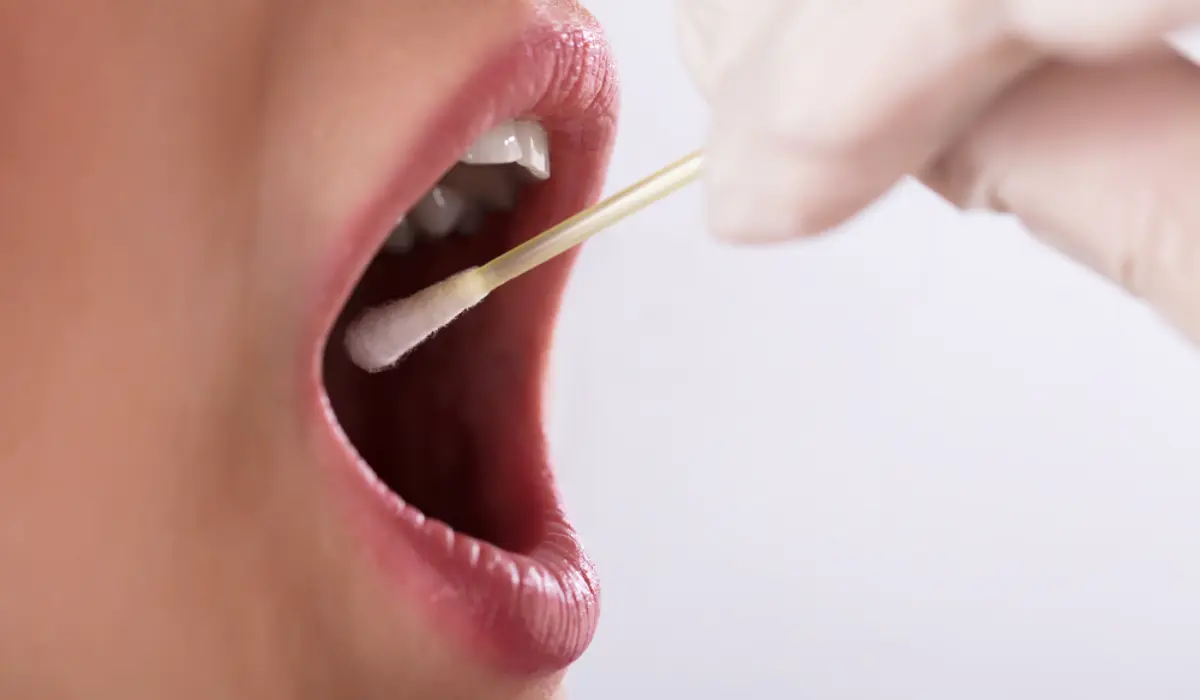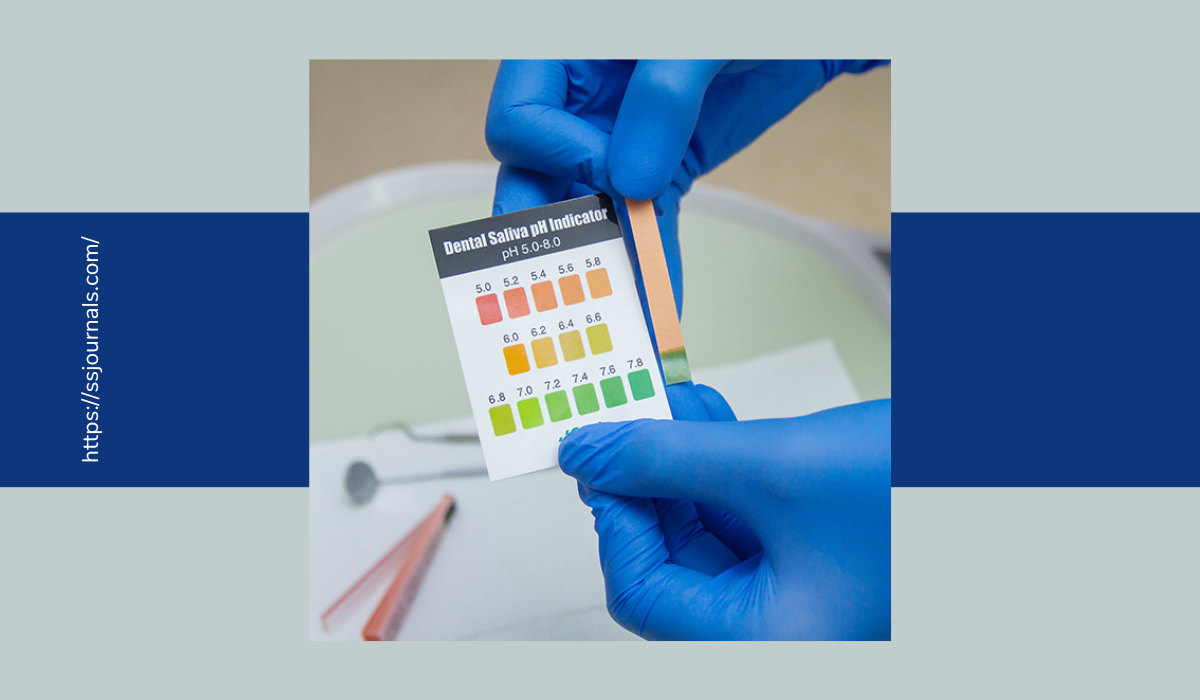Saliva plays a crucial role in oral health. It helps protect teeth from decay and provides enzymes to begin digestion. The pH of saliva, which refers to its acidity or alkalinity, is important for these functions.
Typically, saliva pH ranges from 6.5 to 7.5, leaning towards the alkaline side. Maintaining proper pH balance of saliva helps prevent tooth erosion and promotes good oral health.
What Is The pH Of Saliva?

The pH scale ranges from 0 to 14, with 0 being the most acidic and 14 being the most alkaline. A pH of 7 is considered neutral. Saliva pH naturally varies throughout the day but ideally averages around 6.8.
After eating, especially acidic or sugary foods, saliva pH briefly drops before returning to normal levels. Chronically low pH levels make saliva more acidic and can lead to tooth decay. The minerals in saliva help neutralize acids and raise pH.
What Is pH Balance?
pH balance refers to maintaining a proper acid-alkaline equilibrium. In the body, different fluids and tissues require different ideal pH levels. Blood is slightly alkaline with a pH around 7.4. Stomach acid is very acidic, with a pH ranging from 1.5 to 3.5.
Saliva should be mildly alkaline to neutralize acidic foods entering the mouth and prevent erosion of tooth enamel. When pH varies outside the normal range it can affect biological processes.
Symptoms Of Unbalanced Saliva pH
If saliva pH becomes too acidic, symptoms may include:
- Tooth Sensitivity
- Erosion of tooth enamel
- Increased cavities
- Mouth sores or redness
- Metallic or sour taste
- Bad breath
Very alkaline saliva can also disrupt oral homeostasis. Signs of excessively alkaline saliva include dry mouth, foul taste, and increased plaque on teeth.
How To Keep A Balanced pH In My Mouth
Fortunately, there are several ways to maintain a healthy pH in the mouth:
- Drink plenty of water to stimulate saliva flow and mineralization.
- Limit acidic drinks like coffee, soda, juice, and alcohol that reduce saliva pH.
- Avoid frequent snacking on sugary or acidic foods which can lower pH.
- Practice good oral hygiene by brushing your teeth twice daily and flossing.
- Use antiseptic mouthwashes to kill harmful bacteria.
- Chew sugar-free gum to increase saliva production and clearance of food particles.
- Get regular dental cleanings and checkups to monitor oral health.
- Consider buffering products like specialty toothpaste or rinsing with baking soda solution to raise pH.
Bottom Line
Saliva pH provides important clues about oral health and potential issues like tooth decay. Monitoring pH balance and maintaining a mildly alkaline environment in the mouth supports strong teeth and healthy gums.
Simple measures like limiting acidic foods, chewing gum, brushing diligently, and staying hydrated can help preserve proper saliva pH. Discuss any concerns over pH levels or dental erosion with your dentist or dental hygienist.
FAQ
The normal pH range for saliva is 6.5 to 7.5. The ideal resting pH averages around 6.8. After meals, particularly acidic foods, pH may briefly drop but then return to baseline within 30-60 minutes.
Saliva pH test strips are available for home use and provide color-coded results indicating pH levels. Dental offices can also measure saliva pH levels during regular visits using advanced tools.
Gastroesophageal reflux disease, diabetes, hypertension, menopause, and Sjogren’s syndrome can reduce saliva flow and pH levels. Eating disorders, drug use, and certain medications like antihistamines also impact saliva pH balance.
While the benefits of alkaline water are debated, some find it helps raise oral pH and neutralize acids after meals. However, plain water is fine for most people. The minerals in the water also help stabilize saliva pH.
It typically takes 30-60 minutes for saliva pH to revert to baseline, around 6.8, after consuming acidic or sugary foods and drinks. The speed depends on individual factors like saliva production and diet.

